
Teachers strikes hurt the students
At a time when the country’s basic commitment to the rule of law is being questioned, Newton educators are teaching their students that breaking the law and thumbing one’s nose at a judge’s order are OK — if it is in your self-interest.

Skill-based immigration could ease labor shortage
A recent Biden administration executive order that amends the Schedule A list, which identifies occupations experiencing labor shortages and allows immigrants in those occupations to expedite their employment in the U.S., could positively impact the hiring of skilled international workers for years to come — a welcome development as the country and Massachusetts struggle to attract talent amidst a worsening labor shortage.

Admissions lotteries would harm vocational-technical schools
Expanding the number of seats available in vocational-technical high schools is a good investment for Massachusetts. But it’s critical they are expanded in a way that promotes equity without endangering the academic and occupational excellence that continues to drive burgeoning demand for these schools.

A nuclear winter is coming for biopharma
The life sciences sector in Massachusetts — which has been flying so high for so long — is about to experience a very hard landing. With the adoption of prescription drug price controls in the Inflation Reduction Act (IRA), drug research and development — the heart of the life sciences sector in Massachusetts — is about to experience a nuclear winter.

Ron DeSantis’ Silly Drug Importation Idea
Ron DeSantis proposed in November 2020 to import drugs from Canada for state agencies such as Medicaid, prisons and other public healthcare programs. The goal is to save $150 million in state taxpayer funds. But the Biden administration seems unlikely to approve the plan, and the FDA has raised objections. Here's why the DeSantis plan will not — and cannot — save even a dollar.

MBTA retirement fund is headed for a financial reckoning
The new MBTA Retirement Fund Actuarial Valuation Report shows the fund is only about 51 percent funded. In 2006, it was 94 percent funded. A “death spiral” generally accelerates when retirement system funding dips below 50 percent.

Installing bike and bus lanes requires public debate
The problem isn’t with the concept of bike lanes but, rather, the lack of public conversation or transparency. Municipal governments are changing the infrastructure and character of entire neighborhoods and small commercial centers with little input from those most affected.

Opinion: Legislature should act on bill to limit out-of-pocket drug costs
S. 609, a bill that would limit out-of-pocket costs for patients paying for prescription drugs, is a clear step in the right direction. Massachusetts should join 16 other states that have passed similar bills to protect patients.

Remove roadblocks for charter schools
Worcester, Brockton, Fall River, New Bedford, and other Gateway Cities in Massachusetts have large waiting lists for charter schools plus room to expand under state caps. What's needed are ways to curb obstructionist behavior that is blocking that expansion.

Opinion: Drug patents aren’t a ‘necessary evil.’ They save lives.
Drug patents are one of the most important public policy innovations in all of human history, and a boon to patients awaiting cures. Inventions only come when inventors are rewarded, not punished. Patents are not a “necessary evil.”

Teachers union wants ed reform money — but not accountability
MTA campaign against graduation test takes their stand to 'farcical…

A Federal Drug Discount Program for the Wealthy
The combination of legal disputes, a growing data repository and investigative reports have necessarily put the 340B Drug Pricing Program under the microscope. Combined with the fact that the policy lacks transparency, 340B has spiraled out of control to the point that no policymaker can ignore the need to look closer.

Licensing burdens thwart economic growth in Massachusetts
0 Comments
/
Immigrants account for 17% of Massachusetts residents but start a quarter of the Commonwealth’s new businesses. These entrepreneurs could create even more jobs that further lift wages and standard of living if not for the unnecessary obstacle of restrictive state and local occupational licensing laws.

Civics education is crucial to engaged citizenship
The Founding Fathers believed the main role of public education was not workforce development, but to create citizens prepared for informed participation in American democracy. Without this, they feared the nation might dissolve. Never have the founders looked more prescient.
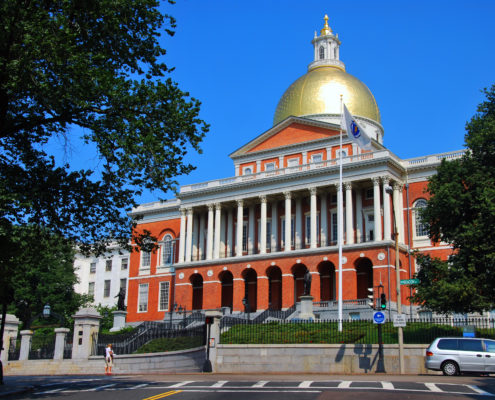
Taxachusetts Must Be Stopped
Going back to the bad old days of Taxachusetts would be an almost unfathomable mistake. Between the $3 billion bombshell that upended the recent legislative session, the ambiguity about how the tax revenue will actually be spent, and the contrasting examples of neighboring New Hampshire and Connecticut, Bay State voters have plenty of reasons to come back to reality and reject the ill-conceived proposal to amend the Massachusetts constitution this November.

Harvard research points to ending drug cost help
A common grievance about Harvard is that the university is out of touch with the concerns of everyday Americans. This perception is confirmed by recent research from Harvard Business School that contends patients should be denied assistance that helps them afford their prescription drugs. The Harvard study argues that in order to control drug prices, the government should deny patients’ access to copay assistance programs offered by drug manufacturers. It flies in the face of federal and state efforts to protect the value of such assistance programs for patients and ignores basic facts about how and when patients use copay assistance to access their medications.
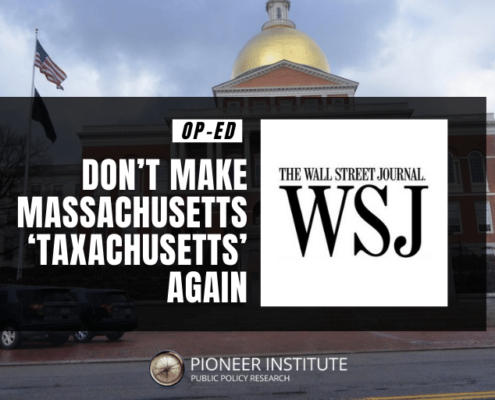
WSJ op-ed: Don’t Make Massachusetts ‘Taxachusetts’ Again
Unlike many blue states, Massachusetts has resisted the temptation to raise taxes on high earners. That antitax fortitude is about to be tested. In November, state legislators will ask voters to approve an amendment to the Massachusetts constitution adding a 4% surcharge to annual income over $1 million.
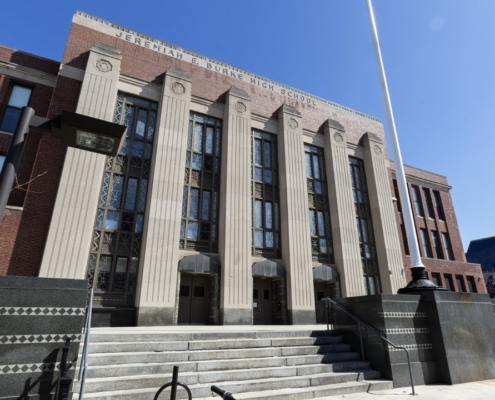
Time for Receivership in Boston
The Massachusetts Department of Elementary and Secondary Education (DESE) recently launched its second review of the Boston Public Schools (BPS) in three years. The move has some up in arms because state law requires that officials conduct a review no more than a year before approving state receivership. For BPS, receivership is long overdue. After more than 15 years of consistent and rapid decline, the district has shown no ability—and limited will—to stem the tide

Civics Education is More Important than Ever
Rather than seeking to raise a generation of political activists and community organizers, civics programs should instill an informed love of our country based on the nation’s founding, how our system of government works, and what Americans have achieved – together with our many failings – since the nation was created.

Removal of Mass. and Cass encampment long overdue
Michelle Wu’s plan to clear tents from the Mass. and Cass homeless camping site by January 12 is long overdue. If only it had been done earlier, the move could have averted a humanitarian crisis.
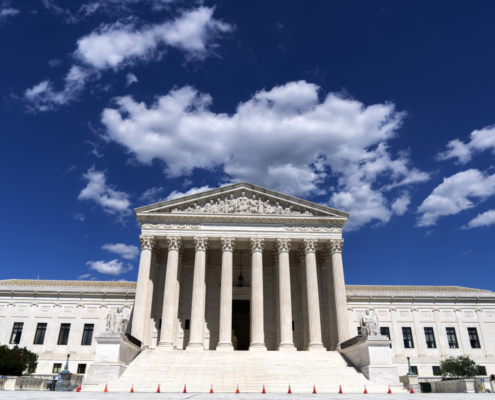
Maine Tries to Ignore a Clear Supreme Court Ruling on Education
As the U.S. Supreme Court takes up Carson v. Makin, the facts are clear. Maine has chosen to subsidize private education. As such, it cannot disqualify all religious schools from receiving public dollars under its school choice program.
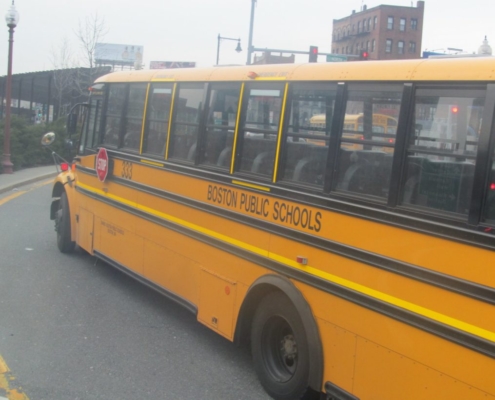
Time for State Action on Troubled Boston Schools
Given the failures of both appointed and elected school boards, perhaps the time has come to have the state Department of Elementary and Secondary Education appoint the members of the Boston School Committee. Patience might be warranted if the Boston Public Schools were improving. But we have waited for decades, and they are only getting worse. Holding adults in the system accountable was a cornerstone of the Education Reform Act. If not now, when?

A Modest Proposal to Raise Federal Revenue
As a way to tackle drug prices, President Joe Biden recently announced that he supports the so-called “inflation rebate,” which would require drug companies to give the federal government any revenue from Medicare drug prices above the general rate of inflation. Senate Finance Committee Chairman Ron Wyden and House Speaker Nancy Pelosi have also publicly endorsed the inflation rebate.
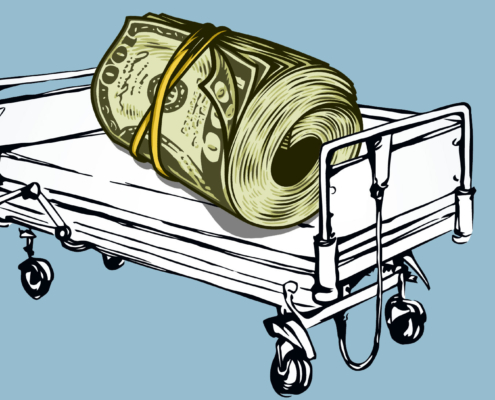
Why are health care costs rising every year in Massachusetts?
The largest driver is the increase in prices by health systems that have the clout to command higher payments and work to recruit more patients to their high-cost facilities.

A truly progressive student loan policy
This op-ed originally appeared in the Boston Globe. It was written…

A Rare Victory for Transparency. Massachusetts Could Use Many More.
Massachusetts is in the midst of wrongdoing on an unprecedented scale. Thousands of convictions had to be vacated because of the corruption of state drug laboratory chemists. Thousands more convictions were vacated because of the combined misconduct of the chemists and prosecutors. And still more will be vacated because of the Commonwealth’s repeated and deliberate failures to investigate the extent to which its evidence was compromised.

A Rush to Judgment on Alzheimer’s Drug
The Boston-based Institute for Clinical and Economic Review (ICER) sells itself as an independent source of information on the value of pharmaceuticals. But earlier this month, their bias was again evident when they tried to kneecap a drug for a dreaded disease before there’s even enough data to determine how valuable the drug really is. ICER has adopted this same strategy in the past on innovative drugs for cancer, cystic fibrosis, and other devastating diseases. This time ICER’s target is aducanumab, Biogen’s drug for Alzheimer’s disease.

Rigorous Civics Education Needed Now More Than Ever
After decades of being overlooked, the importance of teaching US history and civics in public schools is at last gaining momentum. At the same time, the American Rescue Plan will bring an influx of tens of millions of dollars into Massachusetts schools. The confluence of these two events could transform civics education, but turning potential into reality will require combining a high-quality, fact-based curriculum with strong accountability measures.

American Rescue Plan Gives States Money, Ties Their Hands
For state governments, the good news is that the American Rescue Plan recently signed by President Biden will inject $350 billion into their budgets. The bad news is that it places unwise and possibly unconstitutional limitations on how states can use the money.

Charter schools leading the way with in-person instruction
Massachusetts charter public schools have lived up to their decades-long record of excellence during the pandemic, developing innovative ways to continue providing high-quality education by maximizing the number of students who can safely learn in person.
